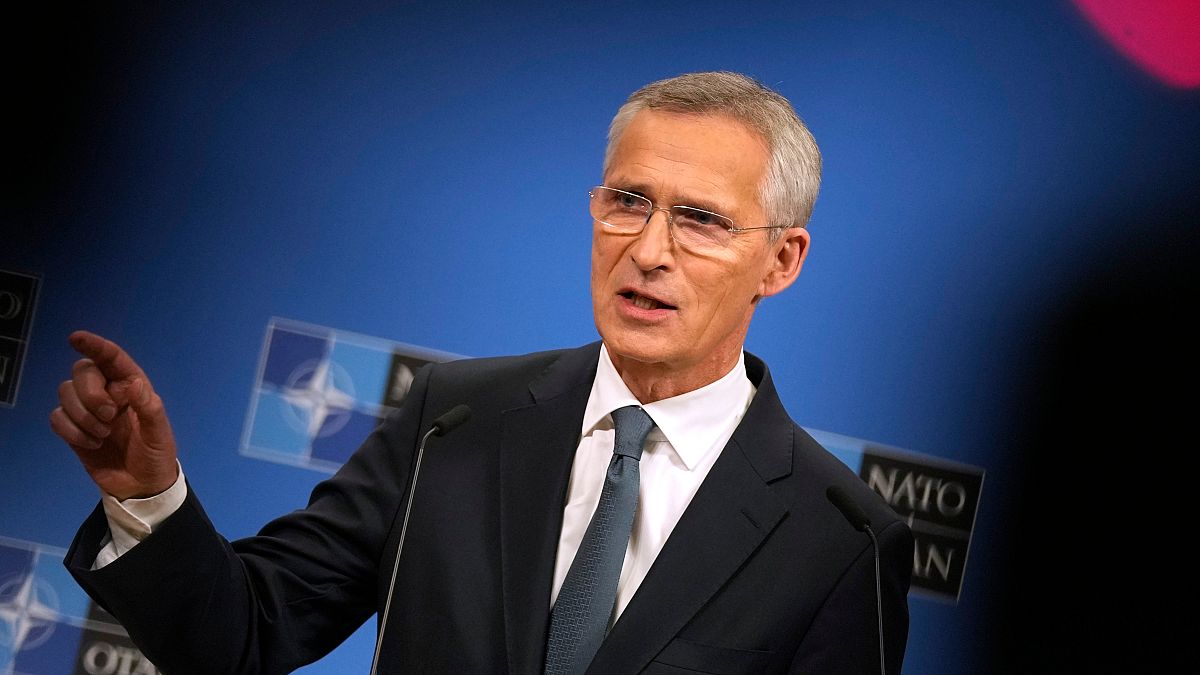NATO Secretary-General Jens Stoltenberg issued a warning regarding Russia’s increased aggression towards alliance members, emphasizing that NATO will not tolerate such behavior. Following a two-day security summit in Brussels, Stoltenberg announced that NATO defence ministers have agreed to provide enhanced security assistance and training to Ukraine. Stoltenberg noted that Russia has escalated hostilities towards NATO member states, leading to the implementation of increased defences, including heightened intelligence sharing, improved protection of critical infrastructure, and further restrictions on Russian spies. The alliance has observed a surge in Russian provocations, including acts of sabotage, cyber-attacks, and the manipulation of migration patterns. Stoltenberg emphasized that NATO will respond to Russian actions in a calculated and measured manner, while also holding Russia accountable for its behavior.
As tensions between NATO and Russia escalate, the alliance has reaffirmed its commitment to strengthening its defences and protecting its member states. Stoltenberg’s warning comes in response to Russia’s recent aggressive actions, including cyber-attacks and acts of sabotage. The alliance has increased its intelligence-sharing capabilities and enhanced the protection of critical infrastructure, such as undersea and cyber space assets. Additionally, NATO has imposed further restrictions on Russian spies operating within its member states. Stoltenberg stressed that while NATO will respond to Russian provocations in a calm and measured manner, it will also publicly call out Russia’s actions and impose consequences for its behavior.
The NATO summit in Brussels marks a pivotal moment in the alliance’s efforts to address Russia’s hostile actions towards its member states. Stoltenberg’s warning serves as a clear message to Moscow that NATO will not tolerate further aggression. The alliance’s decision to bolster its security assistance and training for Ukraine underscores its commitment to standing firm against Russian aggression. Despite Russian President Vladimir Putin’s ceasefire proposal to Ukraine, which has been dismissed as a “sham” by Ukrainian officials, NATO remains vigilant in monitoring and responding to Russian provocations. The alliance’s focus on enhancing its defences and deterring future aggression demonstrates its dedication to upholding stability and security in the region.
In response to Russia’s heightened aggression, NATO is taking proactive measures to reinforce its security capabilities and protect its member states. The alliance’s decision to increase its defences through enhanced intelligence exchange, fortified protection of critical infrastructure, and tighter restrictions on Russian spies reflects its commitment to deterring further hostile actions. Stoltenberg’s emphasis on responding to Russian provocations in a calm and measured manner underscores NATO’s strategic approach to addressing security challenges in the region. By calling out Russia’s actions and imposing costs for its behavior, NATO aims to hold Moscow accountable for its destabilizing actions and prevent future acts of aggression.
The ongoing confrontation between NATO and Russia highlights the complex security dynamics at play in the region. As tensions continue to escalate, the alliance is leveraging its security summit in Brussels to address the growing threats posed by Russian aggression. Stoltenberg’s warning serves as a reminder of NATO’s unwavering commitment to defending its member states and deterring hostile actions. By ramping up security assistance and training for Ukraine, NATO is sending a strong message to Moscow that it will not tolerate further provocations. The alliance’s focus on enhancing its defences and increasing its preparedness to respond to Russian threats underscores its dedication to maintaining stability and security in the face of growing challenges.
Overall, NATO’s response to Russia’s increased aggression underscores the alliance’s resilience and determination to protect its member states. Stoltenberg’s warning and the alliance’s decision to bolster its defences through increased security assistance and training for Ukraine demonstrate NATO’s commitment to upholding stability and security in the face of growing threats. As the confrontation between NATO and Russia continues to unfold, the alliance remains steadfast in its resolve to address Russian provocations in a measured and calculated manner. By enhancing its defences, calling out Russia’s actions, and imposing consequences for its behavior, NATO is sending a clear signal that it will not back down in the face of increased aggression.










